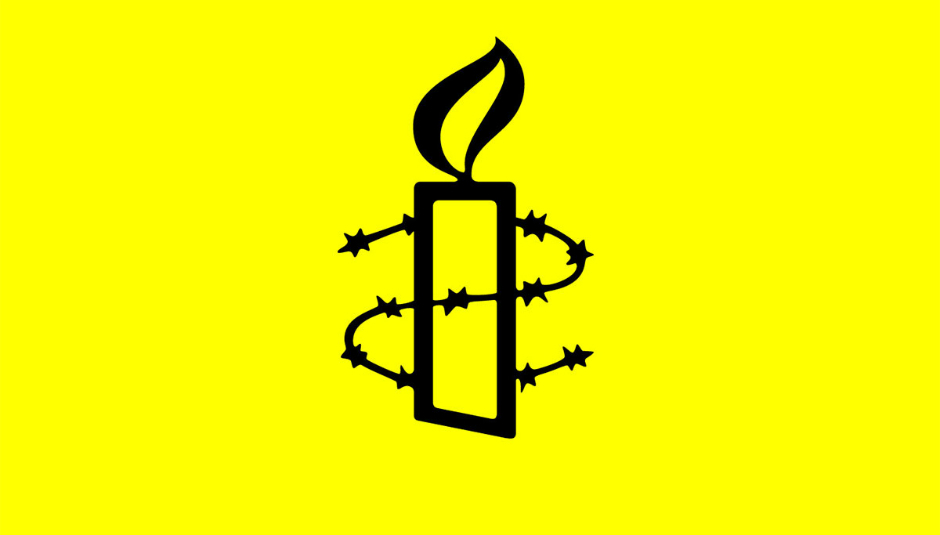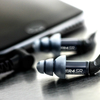Music can do many things: one thing it does particularly well is bring people together as one in a shared, collective experience. Last week, Amnesty International tapped into this power by hosting a number of gigs up and down the country to raise awareness of the growing refugee crisis in the world. The Give A Home event saw a host of internationally renowned and up-and-coming musicians play intimate gigs in people’s homes, promoting the theme of ‘give a home’ to refugees. As Kate Allen, Director of Amnesty International put it: “Music lifts our spirits, helps us to think about things in new ways and it knows no borders. These concerts bring people together to show solidarity with refugees and celebrate what unites us.”
The money raised from the events will go towards Amnesty International’s work to protect human rights around the world. At a time when the global refugee population exceeds 22 million – the worst refugee crisis since the Second World War – the need to help refugees is greater than ever.
“Where governments have failed, ordinary people have taken up the challenge to welcome and show support for refugees,” Allen continued. “We know that this is happening all over the country and it’s fantastic that musicians and music fans are adding their names with Give a Home for Human Rights.”
Drowned in Sound sent a team of writers to cover some of the events up and down the country, seeing sets by Hot Chip, The National, Daughter, Wild Beasts, Nadine Shah, and Staves. After you've read their reviews, take some time to read the words of DiS’s Russell Warfield, who explains why the refugee crisis is so desperate and why awareness of the crisis must be greater.
Around the world today people are coming together at #GiveaHome gigs to tell their governments: #IWelcome refugees! https://t.co/KbSP94L5Rc pic.twitter.com/bQ2KJftObQ
— AmnestyInternational (@amnesty) September 20, 2017
Hot Chip
About to watch hot chip play. Sat on the floor, in someone's kitchen. pic.twitter.com/fshMvsARha
— Adam Collins (@collinsadam) September 20, 2017
"No one puts their children in a boat unless the water is safer than the land.” For a night of high-calibre music, it was the words read out by a representative from Amnesty International that illustrated the unmistakable, united theme delivered by the three artists that followed. The words originate from Warsan Shire, a British-Somali poet who brought to life the experience of parents making the most tortured of decisions: if it doesn't demand pause for thought about the frivolity of our own privileged lives, something is amiss.
At the top of the bill, Hot Chip closed the night to an adoring, respectful room. Alexis Taylor stayed at his keyboard until rising for a stripped back version of 'Boy From School'. Compelled for one more, he offered a single, sombre verse about what home meant to him. Between the songs of her soulful set Naala - an East London native herself from Ghana - explained why stained glass windows inspire her, for the positive light they invariably help a subject be seen through. The imagery was as precise as her voice.
To start the night, Hoo-Has had the room listening intently to ever-so relatable lyrics about hitting re-set one’s sketchy life, before vocalist Mark detailed how he finds it hard to sing ‘Tonight I Put Her To Sleep’ when his girlfriend’s Dad is in the audience. But it was a poem of his own he shared, written for his mum as a youngster about (you guessed it) home, that reinforced the importance of why we were there sitting on a kitchen floor. In someone else’s home, who had welcomed us sight unseen. If only we could all share in that spirit.
Adam Collins
Nadine Shah
Elle Exxe is midway through her ‘Church Song,’ her eyes closed and voice ascendant above gossamer piano and lightly-bowed double bass, when the doorbell goes. There’s a low ripple of laughter but she presses on – it’s a beautiful song – and then Siri chimes in from a sofa to my right. The guys behind Sofar Sounds might have started these living room gigs to get away from disruptions to live sets, but they’ve found a way in regardless.
But hey, that’s all part of the charm – the passing police cars provide the light show, the seagulls lend a percussive caw. And for an evening so laden with weighty themes, with talks from refugee charity the Hummingbird Project and sobering anecdotes of persecution from the artists, the laughter proves a welcome salve. But so is the music, of course, from Elle Exxe’s stripped-down pop to Phoenix Martins’ dream-state blues. “Just picture a David Lynch film,” she says, and that’s about right: from guitars played with their own practice amp to vocals that veer from silk to acid in the same breath this is fascinating stuff and more than a little scary, particularly when Martins goes for a wander around the apartment mid-song and her voice drifts back, mingled with our own nervous awe.
Not as nervous as Nadine Shah though, apparently. “These things terrify me,” she confesses as she downs her beer. "Can’t you talk some more amongst yourselves?” Nope, we’re far too rapt, especially when Shah takes to a toy piano for one of her darkest songs ("I’m meant to be like a goth and I’ve got to play on that…”) and somehow still makes it work. With this unplugged setting placing so much emphasis on Shah’s voice the links to PJ Harvey are ever more pronounced, particularly given their shared themes of conflict, and that same simmering tension, that uneasy quiver pervades her set this evening - although the frequent moments of easy banter and proper comedy leaven the mood spectacularly, sending us out into the Brighton streets with their stag parties and tottering fresher’s still reeling from the unreality of it all.
Christian Cottingham
Daughter
We also had the brilliant @Hansplat for @drownedinsound covering Daughter for @amnesty's #GiveAHome gigs today pic.twitter.com/z2PwZGJbMh
— Elizabeth Aubrey (@aubrey_writes) September 20, 2017
Being ushered through a garage door you might not have noticed were it not propped open and displaying a small paper sign indicating that this is the place, isn’t the way most gigs start. This was my first SoFar event so I wasn’t really sure what to expect as I plonked myself next to a stranger on the hardwood floor of this modern warehouse style home. But Childcare eased us into things with a confident set that easily got us all swaying and feeling less self-conscious.
During a break between acts, the host encouraged us to break the rules of our social British awkwardness by talking to the person next to us, giving us permission to relax into the intimate setting. Then Kareem Samara pulled us back into the spirit of the event playing a haunting solo set, opening with a Syrian ode to the uprising, which at points felt like an assault with sounds as it layered to build the tension and perfectly reflected the tales of refugees that he regaled us with between songs.
If Kareem was a beautiful reminder of why we were all thrown together in this room, then poet Hollie McNish was a little bit of home comfort in amongst the sadness. With perfect British humour she knocked us over the head with politically astute poems that managed to be both incredibly naughty, rip-roaringly funny and bang on point. With our backs a little sore and our minds fully saturated with talent, Daughter took to the stage with a humbling shyness.
There was no doubt that we were all in this room for them, but even they had to acknowledge what had preceded them were hard acts to follow. With haunting vocals and gentle melodies (or as they put it, the saddest songs in the world), they didn’t need to worry. We were in love with them from the moment they nervously started their sound check. And that’s the beauty of a SoFar event; we’re all in it together. Much like the message Amnesty was trying to promote, whoever we are, we’re all just humans at the end of the day.
Hannah Aine Smith
The National
Well that was an unusual afternoon pic.twitter.com/uMUTHZDHhI
— Mtt Lnghm (@MattLangham) September 20, 2017
Hosted in a minimalist Edinburgh flat in a converted factory, this Amnesty Sofar Sounds gig has the feel of a house party. People sit cross-legged in easy knots chatting, and coats are heaped on the bed. Then the biggest indie rock band in the world shuffles in. Loaded looks are exchanged. Of course, that’s how Brits do awe, but it also betrays a collective realisation: this will be a rare, enviable insight into an adored, critically lauded band that’s just crested a commercial peak.
“You’re not going to hear me that well”, says a pre-emptively apologetic Matt Berninger as The National set up. ‘As I Need My Girl’ shimmers into life, a feather-drop, hushed wonder descends, tempering his concerns. With even the sweep of fingers on fretboards audible, his famously plangent baritone is wonderfully unmissable.
The newly minted, hyper-textured sound of Sleep Well Beast - the band’s first UK no. 1 record – slots neatly into an acoustic setup that only further reveals its charms. ‘The System Only Dreams In Total Darkness’ is recast as pleasantly ramshackle, a now timorous guitar solo and all, while the piano-led ‘Carin At The Liquor Store’ bathes in its classic, stately, Nationalesque melancholy.
The setting threatens to be desperately intimate for Berninger, a man who’s both unaccustomed to being eyeballed from a few feet away and who exorcises his myriad societal anxieties in song. Marooned in the centre of the living room, there are no crowds to clamber into, nor walls to lean on (regardless of whether they’d lean away). Sips of water replace his usual concussive prescription of wine, and he writhes mid-song in an approximation of air guitar punctuated by percussive thigh slaps. That he needs a lyrical prompt from the Dessner twins in a woozy ‘Pink Rabbits’ is by the by; he’s a compelling presence in any setting.
As the Obama-endorsed ‘Fake Empire’ closes a pinch-yourself set, our hosts’ rescue hens twig something’s up. They cautiously pad across the yard, smitten, as we all are, by Berninger’s croon. They crane and bob their heads in the background, straining to take it all in. It’s an unexpected, endearing image - rather like a stadium-sized band playing in a flat.
Matt Langham
Wild Beasts
Standing in for the full ensemble of Wild Beasts, tonight we get Hayden Thorpe in solo performance; his crooning falsetto propped up with nothing more than a finger-picked acoustic guitar. On the face of it, it might seem like a lot to lose from the band's established sound: the counterbalance of Tom Fleming’s vocals, along with the sleek, sultry rhythm section that defines their work. On the other hand, Wild Beasts are nothing if not intricate and elegant, and so these songs wear their stripped back status very nicely indeed.
As you might expect, songs like ‘A Simple Beautiful Truth’ - soft, lilting and luxurious - translate to the intimate, pared back setting without any issue whatsoever. But it’s surprising that something like ‘Wanderlust’ – propelled forward by a driving, overbearing beat on record – sounds equally natural and engaging in this state of nakedness. For their recent lurch towards neon colours, big sounds, and thick beats, it turns out that the songs have always remained delicate at heart, and each one gets a wonderful treatment from Hayden tonight.
Russell Warfield
The Staves
@aubrey_writes @DrownedinSound Beautiful set by @thestaves tonight! pic.twitter.com/XKabE23rXT
— Billy Campbell (@hearthewindcry) September 20, 2017
Considering the setup of this gig was a group of competition winners sat cross-legged on the floor of a stranger’s flat, an off-the-wall icebreaker seemed pretty appropriate, though few could’ve predicted The Staves would’ve chosen a group rendition of the nation’s favourite - the Holby City theme tune. The playful irony clearly resonated and everyone happily joined in, duly settling the room.
They began with the enchanting ‘In The Long Run,’ and once the riff and their three vocals began to layer over each other the entire room was captivated, and we’d all stepped into their world. Their luscious harmonies make a funky flat in Shoreditch feel like you’re sat around the campfire, deep in an idyllic glade at the turn of Spring, far from the industrial rhythms of the city. ‘Make It Holy’ brought blissful echoing as they played further with vocal layering, whilst ‘Blood I Bled’ has an ethereal kind of power, and a soaring vigour that proves they don’t just write delicate songs to be sung whilst fireside. Following Jessica’s remark that “we should build bridges not walls,” they, of course, ended with ‘Mexico,’ a fitting end to an inspirited night of harmony and hope.
Billy Campbell
The Crisis Today
Just outside Liverpool Street Station, you will find a statue commemorating Britain’s contribution to the refugee crisis during World War Two. The Kindertransport saved 10,000 children from the threat of genocide by evacuating them to the UK by train. The statue stands outside the station where these children arrived. Several decades later, around this time of year in 2015, the infamous photograph of child refugee Alan Kurdi impressed the gravity of a new crisis into the public consciousness. There are 65 million refugees around the world today; the urgent moral demand for Britain to reinvigorate the spirit of the Kindertransport is clear.
The UK response to the worst refugee crisis since World War Two has been lacking. Our flagship policy in reaction to the unfolding horror in Syria, for instance, was a pledge to take in 20,000 Syrian refugees by 2020. This sounds like a lot, but consider a few facts for the sake of context: there are currently around 5 million Syrian refugees displaced outside of their home country. Turkey alone has taken in an astonishing 3 million of them. Remember also, that these Syrian refugees are only a small portion of the 65 million refugees in the world. We are the 6th wealthiest nation in the world.
Comparative exercises like this demonstrate how little Western countries are doing to fulfil their global obligations to help refugees, instead pursuing policies which lead to more and more deaths. The EU has the most deadly border in the entire world, with 5,000 people losing their lives in 2016 alone. The arrival of around 130,000 refugees in a year is portrayed as a civilisation-threatening crisis for Europe. Meanwhile, around 140,000 refugees arrived in Bangladesh in a single week earlier this month, as a result of the Rohingya genocide.
In a welcome move which most readily evoked the spirit of the Kindertransport, the Dubs amendment promised to resettle around 3,000 unaccompanied children in the UK. Yet our Government scrapped the scheme after bringing in just 200. Recently, news broke about the plight of around 60 kids still stuck in Greece, after applying to be resettled through this scheme over a year ago. They have not heard from the UK since.
At the same time, the far-right is mobilising across Europe. This very week, Alternative für Deutschland won an astonishing 13% of the vote in the German elections on a racist anti-immigration ticket. Beyond electoral politics, the most chilling example of far-right ascendancy came in the form of Defend Europe, a young organisation of white supremacists who crowdfunded their own ship, with the intention of disrupting search and rescue missions carried out by NGOs in the Mediterranean Sea. (In a delicious twist of fate, they broke down, and had to be rescued by one of the search and rescue vessels they were hoping to sabotage).
When you take all of this together - the escalating scale of the problem, the xenophobic forces which are rising to meet it, and the insufficiency of the policy responses - the need for a compassionate long-term solution to the refugee crisis could not be clearer. However, not only are we currently falling short at best (and costing lives at worst) the reality is that we are only at the beginning of a process of unprecedented global migration, especially as the worsening impacts of climate change result in previously unseen forms of extreme weather, drought, famine, disease, and conflict.
We can’t just keep building walls. Bulldozers and barbed wire aren’t only an inhumane response to the movement of people, they will also become increasingly ineffective unless we are prepared to watch death tolls rise around the world. Yet, these are the policies we’re pursuing at the moment. This is why the work of organisations like Amnesty has never been more important - not only on the frontlines of protecting lives and human rights, but as part of the wider work of counteracting xenophobia and fear.
There is space for hope. Here in the UK, the logic of austerity is losing its power and with it, the idea that people are feeling a strain on their public services, their finances, and their well-being because Britain is ‘full’ is diminishing in some ways. It feels possible, for the first time in quite a while, to challenge ideas which have come to be thought of as something like laws of nature: the militarization of borders, the atomisation of society, the competition of all against all. And so while we must not be complacent about the countervailing forces of isolationism, nationalism and outright racism, nor must we give in to despair. An alternative response to the refugee crisis is possible, and may be within reach.
Russell Warfield
For more information about Amnesty Internation, the work they do, and this event in particular, please click here.























